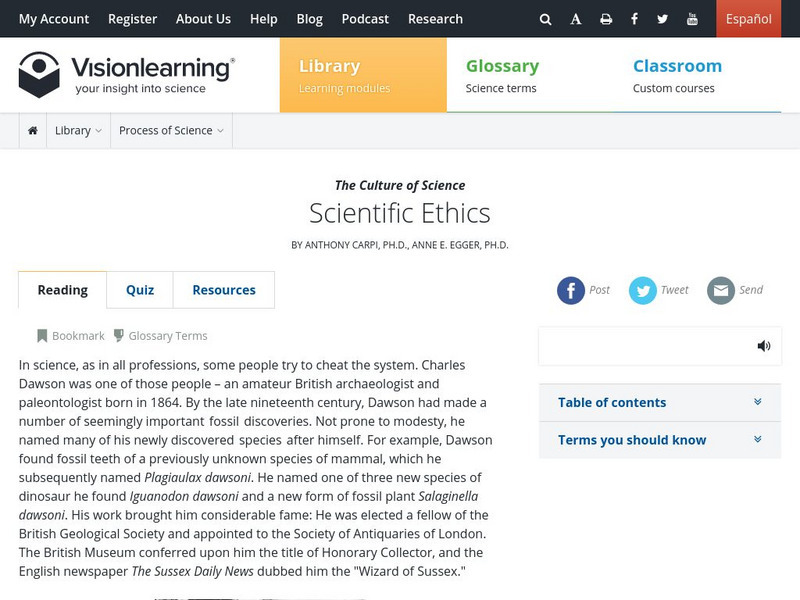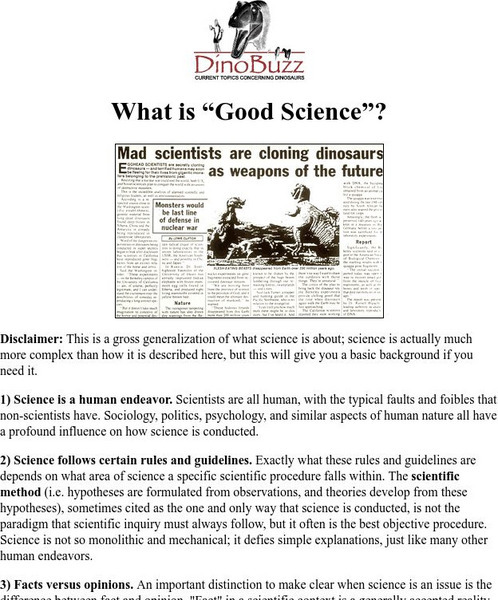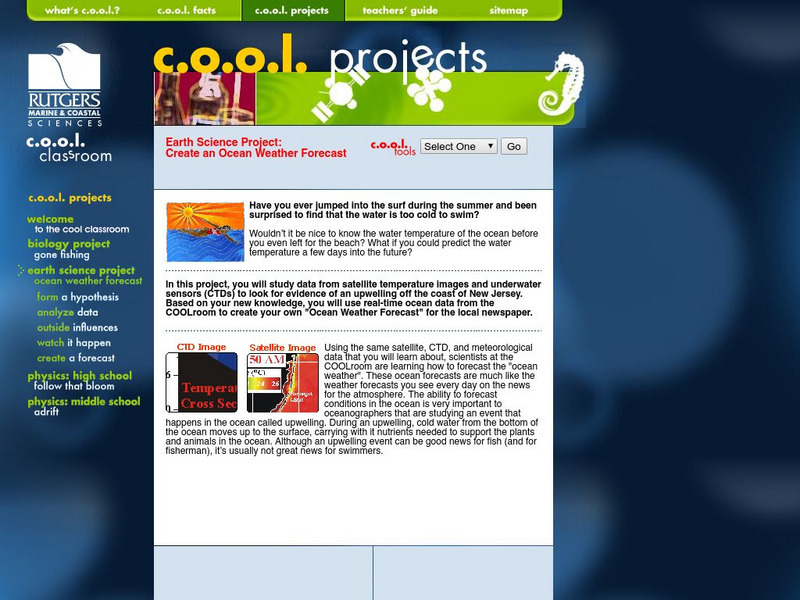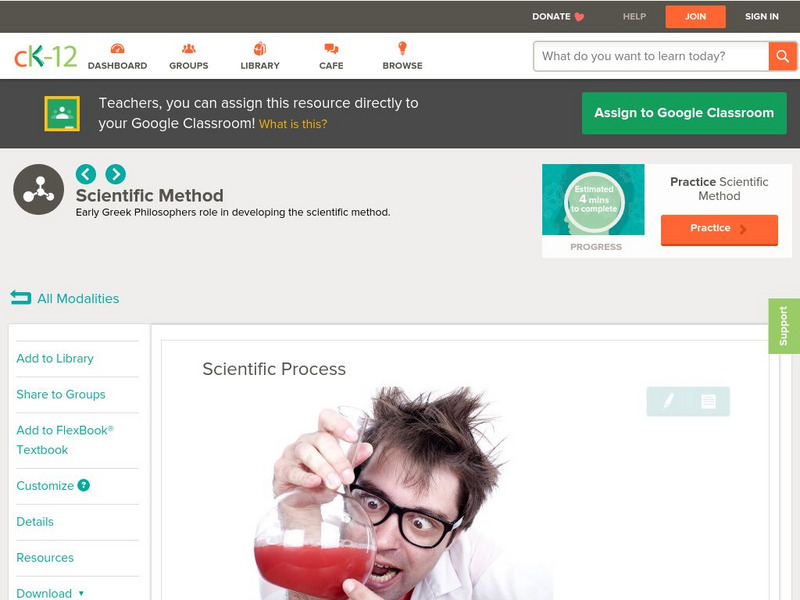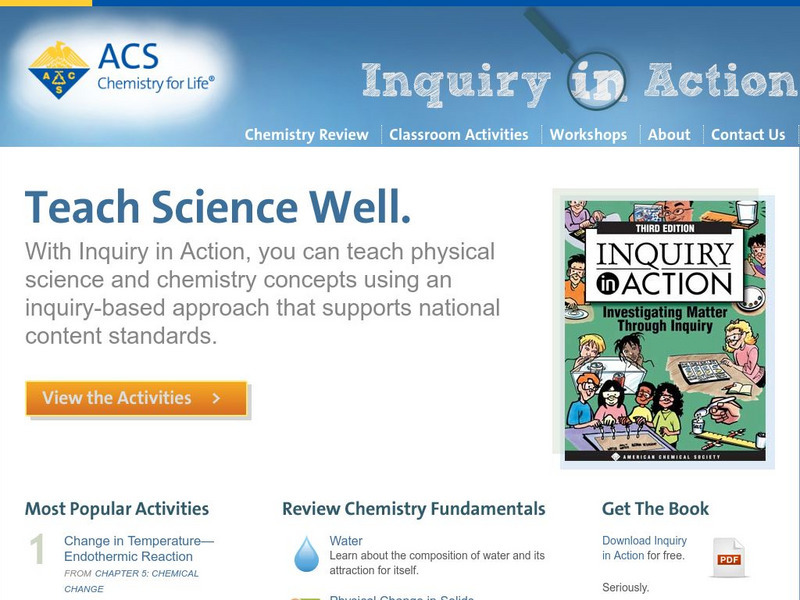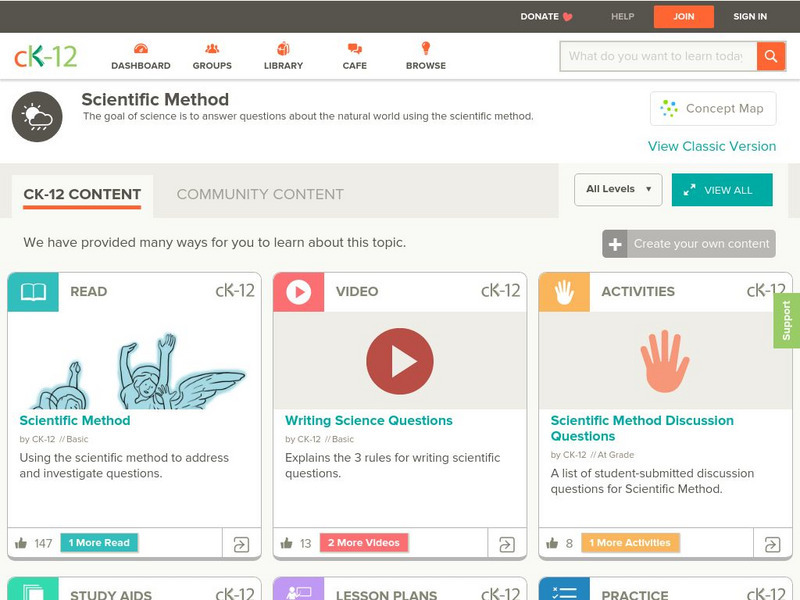PBS
Pbs Learning Media: Scientific Processes
In this interactive activity adapted from NOVA, expand your understanding of the scientific process. Watch two videos featuring animations and interviews with scientists, and notice how the processes unfold and vary from one...
CK-12 Foundation
Ck 12: Physical Science: Scientific Process
[Free Registration/Login may be required to access all resource tools.] Role of investigations in science and the steps of the scientific method.
Vision Learning
Visionlearning: Culture of Science: Scientific Institutions and Societies
An explanation on the importance of institutions and professional societies which have led to a great deal of progress in science.
Vision Learning
Visionlearning: Ideas in Science: Scientific Controversy
Read to find out why controversy in science can actually be productive and help science progress.
Vision Learning
Visionlearning: Culture of Science: Scientific Ethics
An explanation of why ethics play an important role in science and research.
CK-12 Foundation
Ck 12: Earth Science: Scientific Community and Research Tools Study Guide
[Free Registration/Login may be required to access all resource tools.] Discusses the steps involved in presenting a hypothesis to the scientific community and what happens during and after peer review. Explains what a scientific model...
University of California
Ucmp: What Is "Good Science"?
A very good explanation of the scientific process and the differences between science and non-science. This is a concise and clearly written description.
Other
Rutgers: c.o.o.l. Class: Earth Science Project: Create an Ocean Weather Forecast
Want to learn how to forecast ocean weather? This c.o.o.l. project lists each of the steps in the scientific process, and has you work through each in this earth science based project.
CK-12 Foundation
Ck 12: Chemistry: Scientific Process
[Free Registration/Login may be required to access all resource tools.] Role of investigations in science and the steps of the scientific method.
Other
In Tech Open: The Emergence of Scientific Reasoning
A chapter focused on the methods children use to seek and collect information on various topics. Why would younger children have a keener ability to use scientific reasoning than older students or adults? Explore the possibilities.
CK-12 Foundation
Ck 12: Life Science: Scientific Investigation
[Free Registration/Login may be required to access all resource tools.] The scientific method is a process used to investigate the unknown. It is the general process of a scientific investigation. This process uses evidence and testing....
University of California
Understanding Evolution: Nature of Science
Understand the processes behind the nature of science.
CK-12 Foundation
Ck 12: Plix: Scientific Process: Physical Science
[Free Registration/Login Required] Put the scientific method steps in order in this interactive flow chart! This site also includes a short quiz over the scientific method.
Vision Learning
Visionlearning: The Process of Science
An introduction to scientific process and thinking like a scientist.
University of California
University of California at Berkeley: How Science Works Flowchart [Pdf]
A flowchart for elementary students outlining how the scientific process works.
ReadWriteThink
Read Write Think: Digging Up Details on Worms: Using Science in an Inquiry Study
A lesson plan based on a study unit of earthworms, using the inquiry model to integrate scientific processes with literacy practices. Instruction plans, related resources, and standards are included.
American Chemical Society
American Chemical Society: Inquiry in Action: Teach Science Well
Online textbook reviews fundamentals of chemistry and physical science via slideshow presentations, notes, and videos. Materials for classroom activities engage students in inquiry-based, hands-on investigations covering molecular...
American Chemical Society
American Chemical Society: Inquiry in Action: Teach Science Well
Online textbook reviews fundamentals of chemistry and physical science via slideshow presentations, notes, and videos. Materials for classroom activities engage students in inquiry-based, hands-on investigations covering molecular...
University of Washington
Washington U: Model for Conducting Scientific Research
This page outlines the scientific method, step by step.
CK-12 Foundation
Ck 12: Scientific Method
[Free Registration/Login may be required to access all resource tools.] Instructional videos, grade-level texts, interactive activities, and review material about the scientific method.
Smithsonian Institution
Smithsonian Education: Minerals, Crystals, and Gems
Through this series of three lessons, students will gain an understanding of the basics of mineral science. In their investigation they will also work through the scientific process as they practice their observation skills, form...
CK-12 Foundation
Ck 12: Life Science: 1.3 Scientific Method
Explore the process of doing scientific investigations.
Sophia Learning
Sophia: What Is Science?
A brief overview of the body of science, including the purpose of doing scientific work.
Lumen Learning
Lumen: Boundless Biology: The Science of Biology
Explore the concept of scientific reasoning, and compare and contrast hypothesis and theories while understanding the difference between deductive and inductive thinking.




